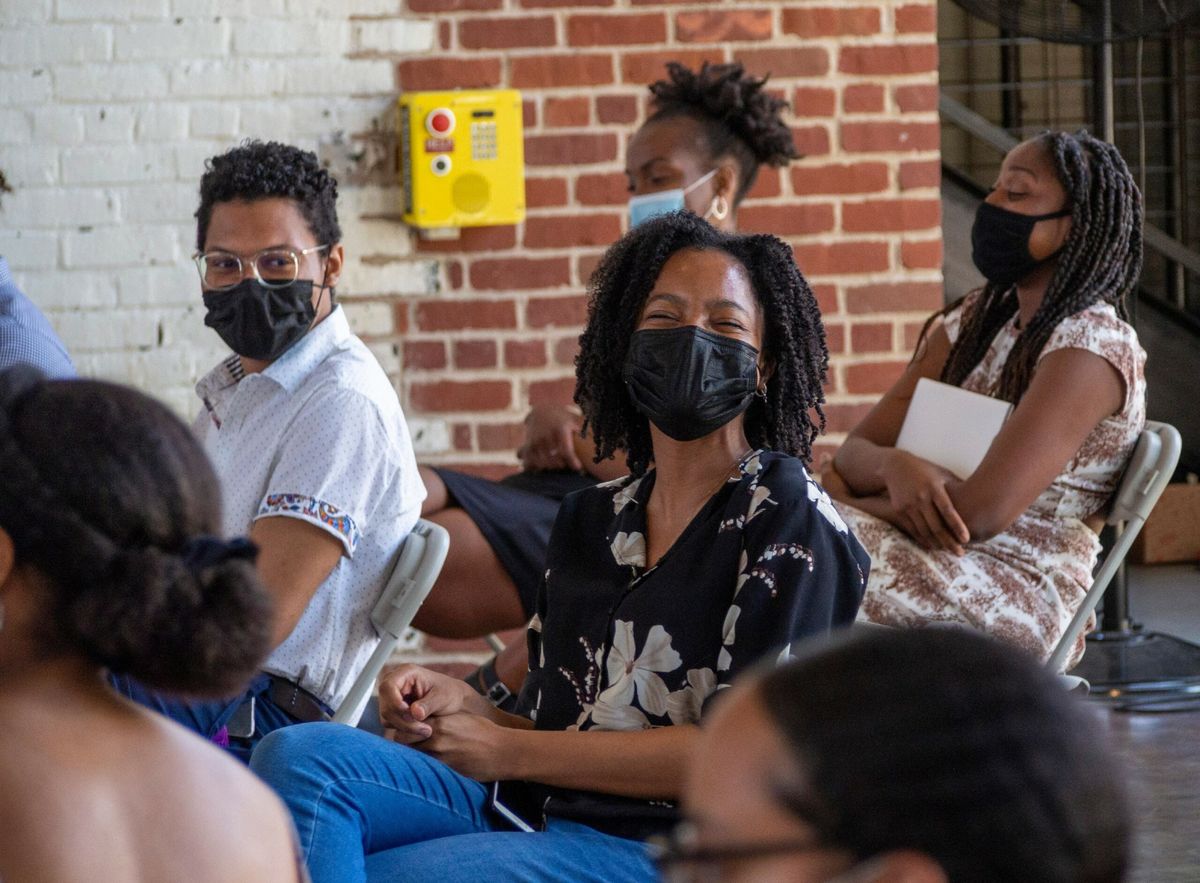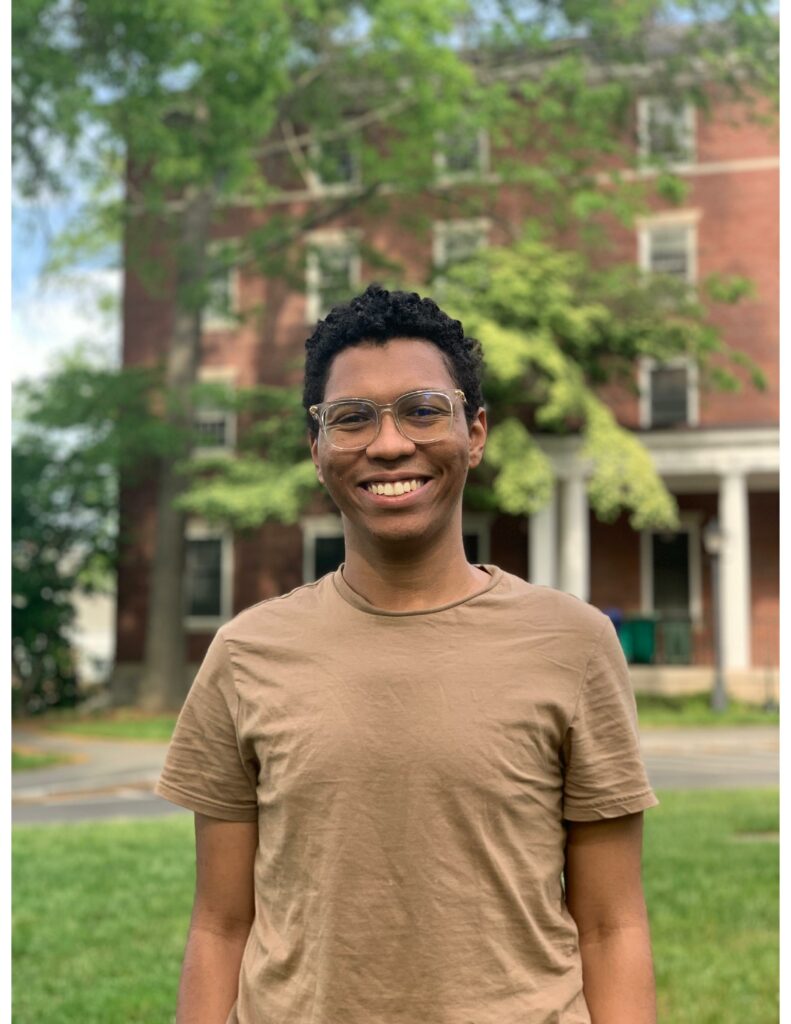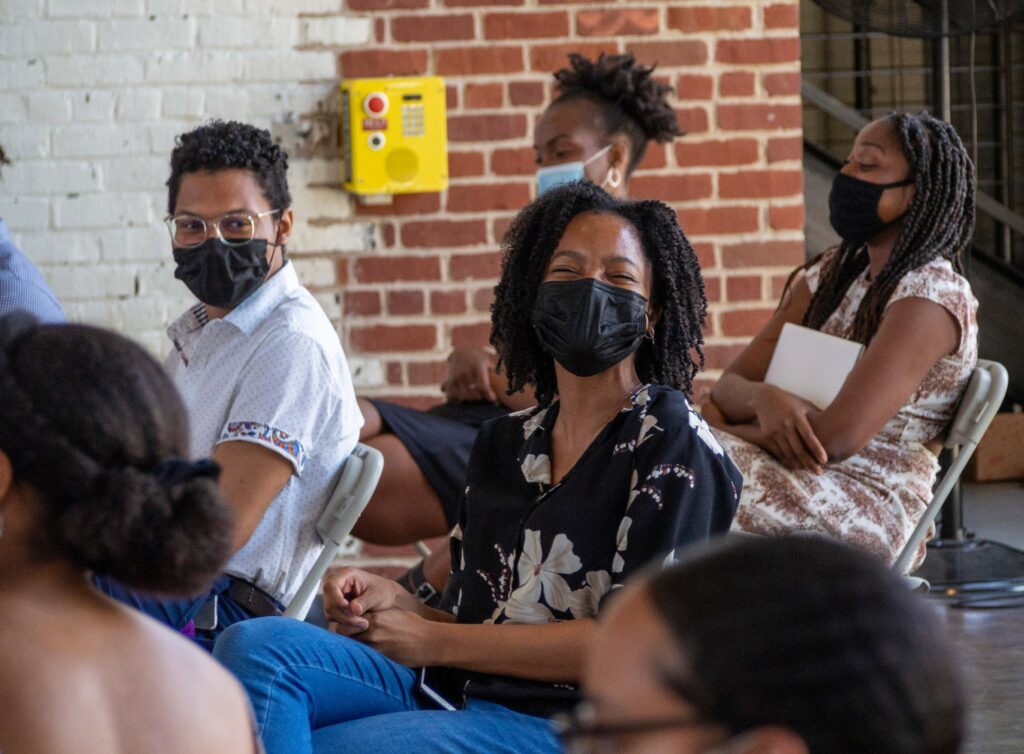David Rosa: Embracing Change and Building Community


“Never stop advocating for other people, caring for other people, and trying to make this campus a better place,” said David Rosa ’21 as advice to underclassmen at Amherst before we finished our conversation. This also encapsulates how he leads his own life.
Our hour-long conversation made it obvious how much Rosa valued community in every space he enters. Allen Hart, director for the Center for Restorative Practices (CRP) and professor of psychology, insists that “the skills he has honed during his four years at Amherst will be deeply beneficial to the communities lucky enough to embrace him.”
Sprawling City, Close-Knit Community
Rosa grew up in “the best neighborhood in Brooklyn,” Bedford-Stuyvesant. He reminisces of the hot summers spent playing with other children in his neighborhood while parents sat and watched together. Even at a young age and in a bustling city, Rosa was a part of a close-knit community.
Rosa went to Brooklyn Technical High School with more than 5,000 students — the size of his graduating class is comparable to Amherst’s total enrollment. “It was easy to get lost in the hallways,” he explained. Aside from the lack of connection among the masses, Rosa was involved in musical productions and plays, describing himself as a “theater nerd.” Brooklyn Tech also offered different majors for students to focus on, allowing Rosa to study “Law and Society,” piquing his interest in a legal career.
As the first person in his family to attend college outside of the City University of New York City, Rosa navigated the college application process on his own. He was drawn to Amherst because of the small size and the open curriculum that would allow him to “shape [his] education into whatever [he] wanted it to be.”
The first time Rosa stepped onto the Amherst campus was for the Summer Bridge program, in which a small group of first-generation low-income (FLI) students is invited to campus before their freshman fall to acclimate to college life. In that moment, he recalls feeling “like a clean slate” with “excited new energy.” Despite not knowing what to expect in the years to come, Rosa had an open mind and looked forward to the new adventure ahead.
The three-week Bridge program prepared Rosa socially and academically for the looming start of his undergraduate career. “You’re really just learning and making mistakes and figuring out how to find your own voice in your writing,” he explained of the summer classes. Rosa is still close friends with the other Summer Bridge students and “will always be rooting for Summer Bridge students.”
The Clean Slate
Summer Bridge provided Rosa with a community before starting school, but the transition to life at Amherst still came with difficulties. He managed three jobs during his first year and felt the burden of time management. As a FLI student with immigrant parents, Rosa explains that he was not financially literate and the campus lacked adequate resources. Still, Rosa was able to create a home away from home in the Amherst community and identify his own ability to make his experience whatever he wanted.
Rosa felt confident in making Amherst a space for him to “discover [himself] and learn about other people.” And during his first year, Rosa did exactly that. He was not as involved on campus as he would be in the coming semesters, but instead, he valued social spaces like Val, where he could meet new people, and Frost Library, where he worked the front desk and studied with friends.
Coming into Amherst with a clean-slate mindset allowed Rosa to hone into what he wanted and not limit himself to certain expectations. Focusing on law in high school and through internships, Rosa thought he would major in law, jurisprudence and social thought (LJST) and become a judge. But after taking “Personality Psychology” during his first year, Rosa fell in love with the subject, especially with learning about why people do the things they do — an essential understanding for community leaders.
Eventually, Rosa’s involvement on campus started to reflect his commitment to community building as a member of La Causa, African and Caribbean Students Union, Black Students Union, Amherst College Debate and the Association of Amherst Students (AAS), eventually becoming vice-president and later interim president when we were sent home last spring.
His sudden passion to join student government arose after the Common Language Document was released his sophomore year and the campus erupted into chaos. From that moment forward, Rosa could not ignore the lack of communication on campus that divides that student body. He realized that “we don’t have the proper channels to communicate and discuss and dialogue” and knew he could take action by running for vice-president. This catapulted Rosa’s commitment to actively strengthen the Amherst community.
“It was definitely weird entering a space where it’s your first time in there and you’re already in a position of power,” he said. As vice president, Rosa was responsible for facilitating meetings. “It definitely taught me a lot about myself and my own abilities,” Rosa added. He noted that
When the pandemic hit, Rosa was pushed into another role as interim president. He was responsible for communicating between the administration and students as everyone panicked about what would happen next. While juggling the responsibility of supporting students at home and on campus, Rosa helped implement fundraisers through the summer for Black mutual aid groups and donation matches from the college. Rosa’s experience on the executive board exposed a much deeper level of disconnect between AAS and the student body between members of AAS. He wanted another way for the community to be connected outside of the student government.
That’s when Rosa’s advisor and role model, Allen Hart, asked him to help implement the Center of Restorative Justice. This has allowed Rosa to engage with many different circles across campus on restorative justice philosophies that hold students accountable while healing the community.
“David brings empathy and gentle wisdom to his meetings and personal interactions”, Hart stated, “He sees and reads the room and individuals beneath the surface. David is a pensive listener and has been a great facilitator for some very difficult conversations.”
Rosa explained the importance of restorative practices: “We’re all here together. We have each other and we just have to figure out how we can understand each other… the better that we understand and are in community with each other, the better equipped we’re going to be to handle [these] situations.”

Beyond Amherst
The passion and love that Rosa has for his communities is most evident when talking about his peers and mentors. No matter who he was referring to, Rosa spoke with the utmost respect for those that have helped him through Amherst. He credits his friends, family and therapist for supporting him the most.
“They have seen my ups and downs and, you know, pushed me to think outside the box and then push past my fears and they helped me grow. I honestly don’t think I’d be the person I am today without them,” he said.
Rosa has the same passion with the professors that have contributed to his success both in and out of the classroom. “I just love that man. I really look up to him,” Rosa said about Hart. “He’s always interested in who you are and what you are doing. Not just academically but personally.”
Even through difficult times, Rosa expresses gratitude. “I feel like she always kept me really, really centered and balanced,” he says of mentor Martha Umphrey. “She always gives me a balanced perspective and she was really always encouraging me to do more and to be attentive to myself and my needs.”
When I asked Rosa what the most valuable thing he learned about himself was, he responded simply, “I don’t think change on this campus happens because of one person’s accomplishment,” and continued to thank about a dozen more names.
Rosa’s humility does not hide the fact that his infectious laugh and warm personality has left an indelible mark at Amherst. Umphrey insists that “worlds continue to open up for David because he greets life with hope and resilience and a wide open mind and heart.”
Rosa is leaving Amherst with the skills to impact even more communities. He has a job offer from Perry Guha LLP, a law firm in New York City, as a legal analyst and hopes to eventually earn both his J.D. and MSW. In the long run, Rosa wants to continue the work he has done at Amherst and open his own restorative justice and treatment center with other Amherst friends.
Despite these plans in place, Rosa understands his future as a clean slate. “Now, you’re being released from school and you can literally do anything. Anything. The possibilities are endless,” he explained. “And so, I don’t think that it’s a matter of being prepared, per se. I think it’s about outlook again. Embracing that change, right? Because things will perpetually go awry or go well in the rest of your life and it’s just knowing that at the end of the day you have yourself and that’s what matters.”
Above all, David Rosa has come to know the power of community during his time at Amherst. “I think the one thread that has pulled through for me at Amherst has been love and that’s been really central in my experience and me discovering what that is, what that means to me, how it can really change people around you. And I’m not just talking about having a partner or something, but the connection you feel to other people.”
He left me with four words that describe how he guides his life: community, love, balance and change.





Comments ()